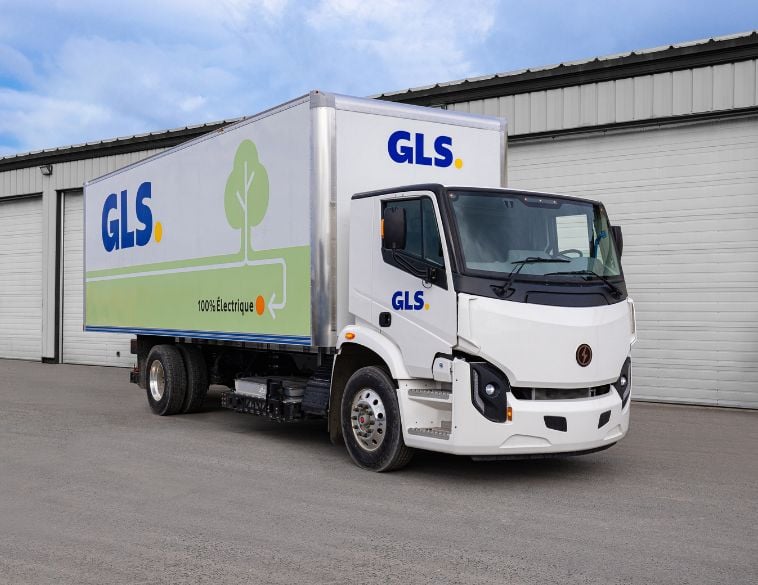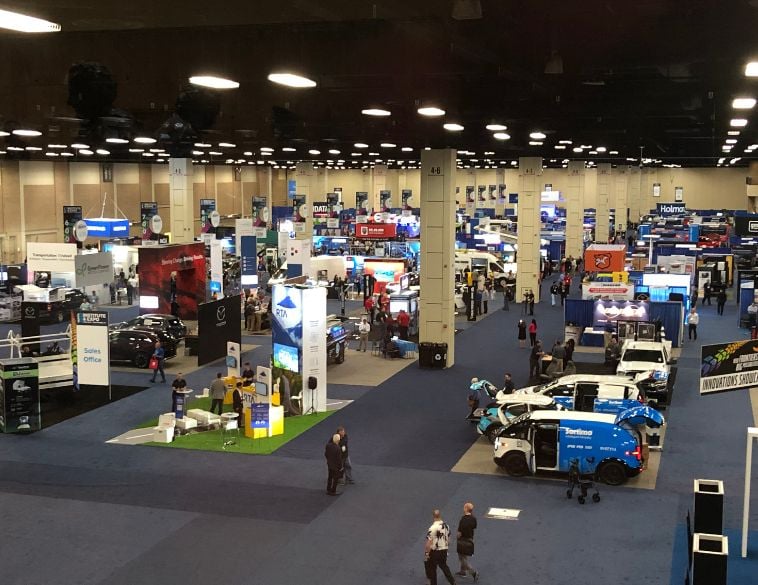GLS Canada, a company offering parcel, freight and paratransit logistics services, is teaming up with Lion Electric, a manufacturer of zero-emission heavy-duty vehicles, to implement the electrification project for its fleet of vehicles.
Formerly known as Dicom, GLS Canada offers parcel, freight and parcel logistics services.
“Our aim is to achieve carbon neutrality by 2045 by integrating electric vehicles into our fleet,” explains Mélanie Camara, Environment & Sustainable Development Manager at GLS. “Our project began with the electrification of part of our fleet, but we plan to introduce other technologies such as renewable natural gas and hydrogen. We also aim to have a fleet with 50% zero emission vehicles by 2030.”
GLS has therefore just acquired four trucks manufactured by Lion Electric for its Canadian fleet. These four lorries represent “a saving of 400 tonnes of greenhouse gas emissions each year, which is the equivalent of nearly 80 cars on the road.”
But the collaboration with Lion Electric encompasses many other facets of this major project.

Here are the steps and instructions that have shaped this partnership and enabled GLS to benefit from Lion’s expertise:
- Know how much energy your electricity company can supply to your installations
“For us, the availability of electricity was a strategic issue from the outset,” explains Patrick Beaudoin, VP Services & Operations at GLS. “We had to make sure we had enough energy in our buildings to power our EVs, because stopping production to plug in vehicles was out of the question; at GLS, since we work evenings and nights, we use a lot of electricity at night.”
Beaudoin therefore recommends that Hydro-Québec should also be involved in the electrification process from the outset.

- Make data-driven decisions
In the planning process, Lion Electric recommends taking into consideration the analysis of all available EV data. “It’s not always easy to do, and that’s why we recommend starting the process early,” says Lion’s Jérémie Langelier.
Lion Electric recommends that routes that can be electrified be assessed and identified early on in order to fully understand the business case.
- Join forces with experts to assess your recharging infrastructure
A number of operational aspects need to be analysed in order to choose the right charging points: the type of truck to be charged, and the energy and time required for recharging.
“Lion was there to help us decide what kind of bollard we should buy and what we needed to install them,” recalls Beaudoin. Beaudoin. What’s more, Lion was able to deliver the bollard we needed quickly, whereas competitors were offering delivery times of 8 to 10 weeks.”
- Help in exploiting and maximising the financing available

According to Lion Electric, there is a large ecosystem of subsidies in Quebec and Canada, and all you have to do is find out how much is available.
For example, GLS has obtained a grant of one million dollars from the City of Montreal for the development of the first GLS Canada ecocentre in Montreal. The grant will be used to install charging points for EVs and add more green space around the terminal.
GLS has also turned to the Propulsion Québec group, which offers subsidies to top up government funding for infrastructure.
According to Camara, subsidies remain a key issue “because making the transition to electric vehicles requires significant investment not only in the acquisition of EVs, but also in infrastructure.”
- There will be obstacles in the way of switching to electric…
The electrification project has gone well for GLS Canada, despite a few teething problems.
“For example,” says the GLS director, “there have been a few occasions when one of our trucks didn’t work, but Lion’s service and support were impeccable. Within an hour of making the service call, a representative was already in our yard and quickly fixed everything.”
Finally, for this type of project, Lion Electric reminds us of the importance of a one-year learning curve for drivers, route managers and customers alike. “The issues surrounding transport are not easy, and you need to allow a certain amount of time to develop your understanding of the matter,” concludes Langelier.



